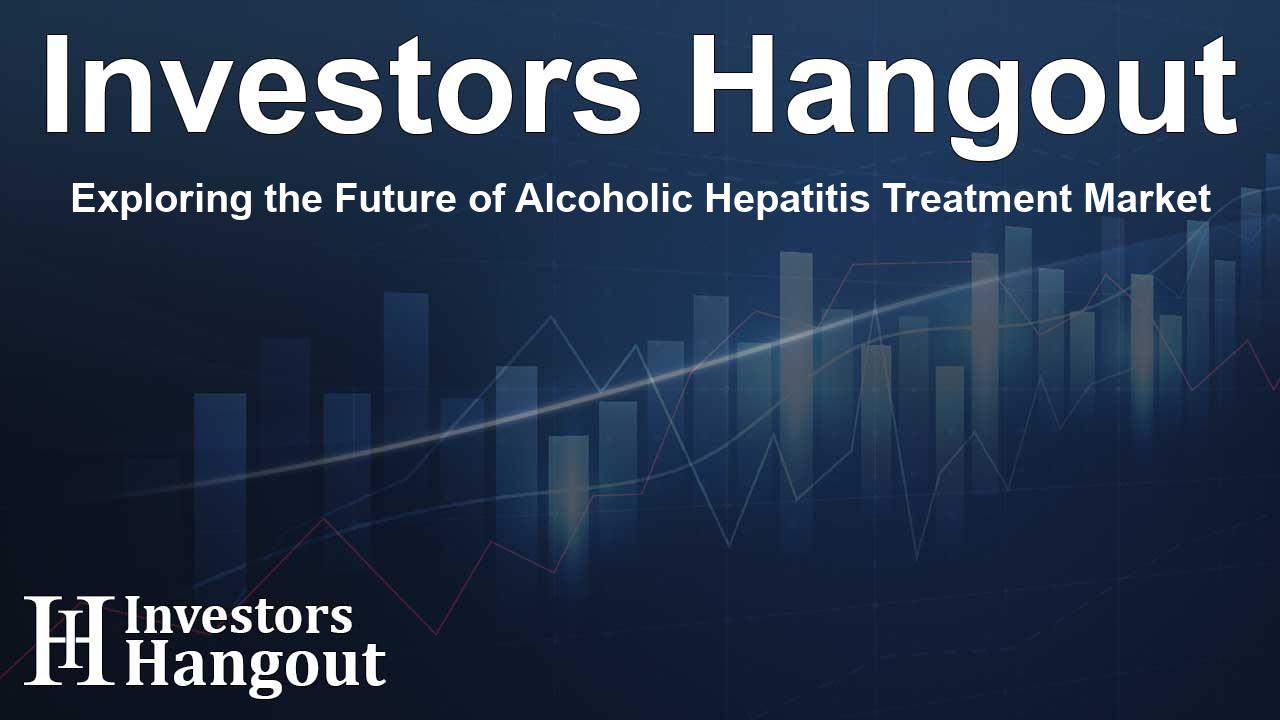Exploring the Future of Alcoholic Hepatitis Treatment Market

Overview of Alcoholic Hepatitis Treatment
Alcoholic hepatitis treatment is crucial for managing liver inflammation resulting from excessive alcohol consumption. Key methods include the immediate cessation of alcohol intake, nutritional support, corticosteroid therapy, and, in critical cases, liver transplantation. Early diagnosis coupled with proper medical intervention can significantly enhance patient outcomes and prevent liver failure. Treatments are customized based on the severity of the disease and the overall health status of the patient, focusing on long-term abstinence and supportive care.
Market Growth Projections
The alcoholic hepatitis treatment market is experiencing notable growth, projected to value $1,064.98 million by 2034, with a compound annual growth rate (CAGR) of 4.7% from 2025 to 2034. Such growth is spurred by the increasing prevalence of alcohol-related liver diseases and heightened awareness of the impacts of early diagnosis and management.
Market Dynamics
Several factors are driving the alcoholic hepatitis treatment market's expansion. A significant increase in alcohol use disorder (AUD) cases has raised the risk of developing alcoholic hepatitis. Governments and health organizations are actively promoting initiatives to enhance public awareness regarding liver health. For instance, substantial research funding has been allocated to support initiatives focusing on liver disease, contributing to the development of innovative treatment options and standardizing care protocols.
Treatment and Therapeutic Advancements
Recent developments suggest a growing interest in novel therapeutic approaches. Notable advancements include the exploration of interleukin inhibitors and gut microbiota modulators. The industry is also witnessing an increase in clinical trials for biologics and stem cell therapies aimed at providing effective treatment options for alcoholic hepatitis. The rise in global alcohol consumption and the prevalence of liver diseases significantly contribute to this market's growth trajectory.
Challenges and Solutions
Despite the market's growth, challenges persist. The limited availability of approved pharmacological treatments primarily results in reliance on corticosteroids, which are not universally effective and carry potential adverse effects. To address these issues, enhancing research efforts for novel drug classes is vital. Further, community-based intervention programs can be introduced to ensure better compliance and timely diagnosis, particularly among underserved populations.
Regional Insights
North America leads the alcoholic hepatitis treatment market, fueled by high alcohol consumption rates, advanced healthcare infrastructure, and robust research initiatives. Within this region, many patients are being considered for liver transplantation due to severe alcohol-related liver disease, creating new opportunities for therapies and clinical studies.
Europe follows closely, influenced by increasing cases of alcoholic liver disease (ALD). The ongoing efforts to strengthen public health systems aim to improve care accessibility, although regional disparities remain a concern. Despite regulatory hurdles, collaborative EU-funded programs are emerging to address liver disease management effectively.
Emerging Markets
The Asia-Pacific region represents the fastest growth segment of the alcoholic hepatitis treatment market. Countries like China and India are witnessing rising alcohol consumption and improving healthcare frameworks, enabling a broader population to access treatment services. Collaborative approaches involving public-private partnerships can enhance healthcare outreach in these rapidly developing areas.
Key Players and Competitive Strategies
As the market continues to evolve, product launches and regulatory approvals play pivotal roles in shaping competitive dynamics. Companies like ANI Pharmaceuticals, Intercept Pharmaceuticals, and DURECT Corporation are leading efforts to expand their treatment offerings and technological capabilities. For instance, recent initiatives focus on the development of targeted therapies for severe alcohol-associated hepatitis, advancing the horizon of treatment options.
Frequently Asked Questions
What is alcoholic hepatitis?
Alcoholic hepatitis is an inflammatory condition of the liver caused by excessive alcohol consumption, leading to liver damage.
What treatments are available for alcoholic hepatitis?
Treatments include alcohol cessation, nutritional support, corticosteroids, and liver transplantation in severe cases.
What is the projected market growth for alcoholic hepatitis treatments?
The market is expected to reach $1,064.98 million by 2034, with a CAGR of 4.7% from 2025 to 2034.
What factors are driving market growth?
The growth is driven by rising alcohol consumption rates, increased awareness for early diagnosis, and government initiatives for liver disease management.
What challenges does the alcoholic hepatitis treatment market face?
Challenges include limited approved treatment options and the need for improved patient compliance due to social stigma surrounding alcohol dependence.
About The Author
Contact Hannah Lewis privately here. Or send an email with ATTN: Hannah Lewis as the subject to contact@investorshangout.com.
About Investors Hangout
Investors Hangout is a leading online stock forum for financial discussion and learning, offering a wide range of free tools and resources. It draws in traders of all levels, who exchange market knowledge, investigate trading tactics, and keep an eye on industry developments in real time. Featuring financial articles, stock message boards, quotes, charts, company profiles, and live news updates. Through cooperative learning and a wealth of informational resources, it helps users from novices creating their first portfolios to experts honing their techniques. Join Investors Hangout today: https://investorshangout.com/
The content of this article is based on factual, publicly available information and does not represent legal, financial, or investment advice. Investors Hangout does not offer financial advice, and the author is not a licensed financial advisor. Consult a qualified advisor before making any financial or investment decisions based on this article. This article should not be considered advice to purchase, sell, or hold any securities or other investments. If any of the material provided here is inaccurate, please contact us for corrections.
